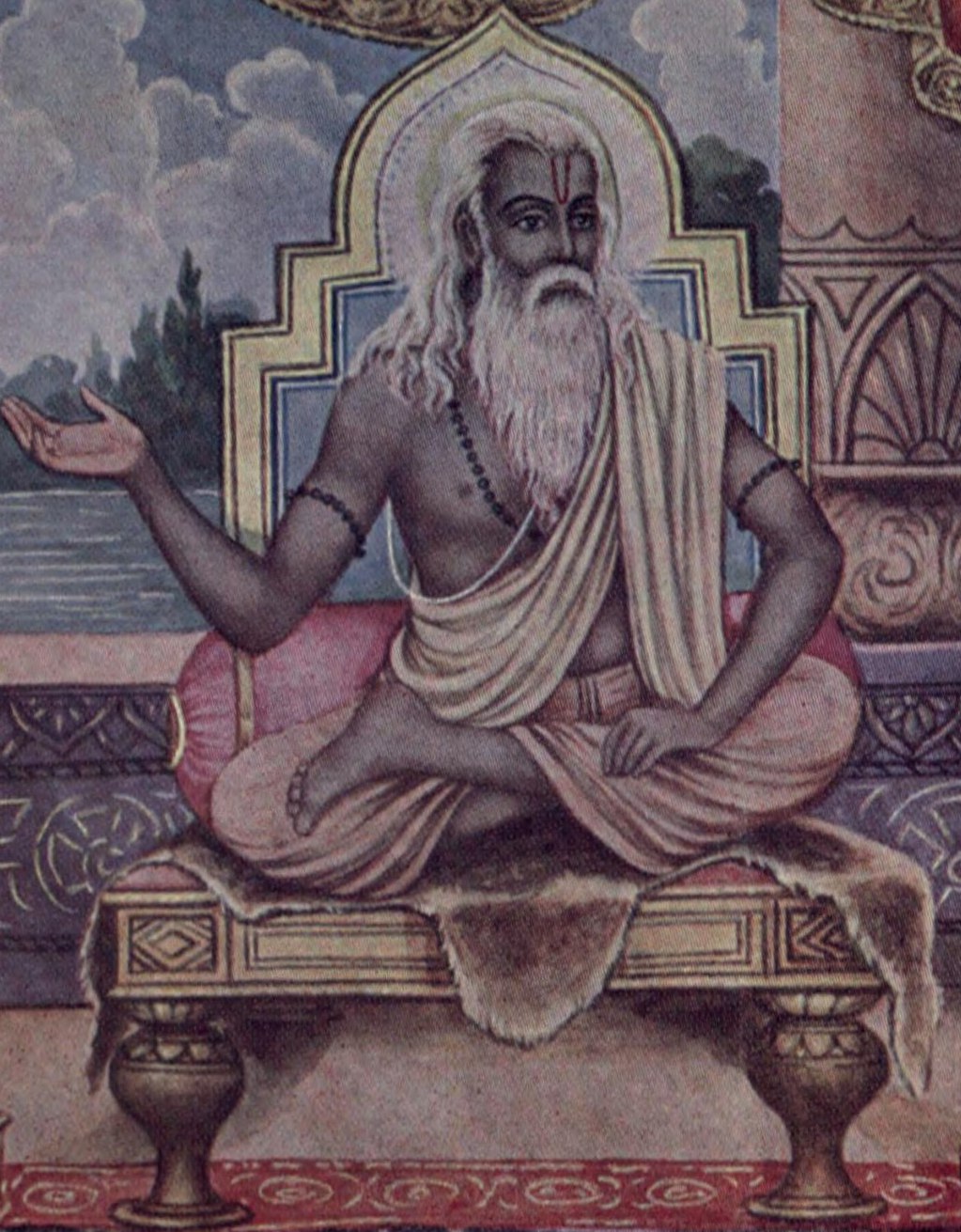Vyasa's advise to the Pandavas, his grandsons who were staying in the forest. Quoted in p. 49.
Sources, Seer of the Fifth Veda: Kr̥ṣṇa Dvaipāyana Vyāsa in the Mahābhārata
Vjása: Citáty anglicky
In p. 3.
Sources, Seer of the Fifth Veda: Kr̥ṣṇa Dvaipāyana Vyāsa in the Mahābhārata
B. K. Pandey, in Encyclopaedia of Indian philosophers, Volume 2 http://books.google.co.in/books?id=d8ROAQAAIAAJ, p. 14.
Sources
In pp. 104-105.
Sources, The Yoga Darsana Of Patanjali With The Sankhya Pravacana Commentary Of Vyasa
Swami Tejomayananada, in p. 139.
Sources, Hindu Culture, An Introduction
Vyasa's condition agreeing to the terms set by Ganesha. Quoted in p. 139.
Sources, Hindu Culture, An Introduction
In p,51.
Sources, Seer of the Fifth Veda: Kr̥ṣṇa Dvaipāyana Vyāsa in the Mahābhārata
and so on up to twenty-eight
Vishnu Purana (Book 3, Ch 3), in The Vishńu Puráńa: A System of Hindu Mythology and Tradition http://books.google.co.in/books?id=bkEpAAAAYAAJ, p. 219.
Sources
Kamakoti Organization, in "Vyasa and Vedic Religion".
Sources
in p. 173.
Sources, The Yoga Darsana Of Patanjali With The Sankhya Pravacana Commentary Of Vyasa
In p. 110.
Sources, The Yoga Darsana Of Patanjali With The Sankhya Pravacana Commentary Of Vyasa
In p. 144.
Sources, The Yoga Darsana Of Patanjali With The Sankhya Pravacana Commentary Of Vyasa
“I am ready, but only on one condition. Once I start writing, you should not stop dictating to me.”
Ganesha to Vyasa on the latter’s request to him to write down his narration of Mahabharata. Quoted in p. 139.
Sources, Hindu Culture, An Introduction
In p. 166.
Sources, The Yoga Darsana Of Patanjali With The Sankhya Pravacana Commentary Of Vyasa
Prof Ralph Nicholos, in p. 50.
Sources, Seer of the Fifth Veda: Kr̥ṣṇa Dvaipāyana Vyāsa in the Mahābhārata
In p. 124.
Sources, The Yoga Darsana Of Patanjali With The Sankhya Pravacana Commentary Of Vyasa
In p. 58
Sources, Seer of the Fifth Veda: Kr̥ṣṇa Dvaipāyana Vyāsa in the Mahābhārata
“Remember me when things are to be done.”
Vyasa to his mother Satyavati Kali, after he was born and forced his body to mature that very day by will power”, meaning that he would appear before her whenever she thought of him, quoted by Alf Hiltebeitel in P.47.
Sources, A Reader's Guide to the Education of the Dharma King
Kamakoti Organization, in Vyasa and Vedic Religion http://www.kamakoti.org/acall/2-vyasa-and-vedic-religion.html
Sources
In p. 129.
Sources, The Yoga Darsana Of Patanjali With The Sankhya Pravacana Commentary Of Vyasa
In p. 47.
Sources, A Reader's Guide to the Education of the Dharma King
Swami Tejomayananada, in p. 139.
Sources, Hindu Culture, An Introduction
In p. 4.
Sources, Seer of the Fifth Veda: Kr̥ṣṇa Dvaipāyana Vyāsa in the Mahābhārata
In p. 103.
Sources, The Yoga Darsana Of Patanjali With The Sankhya Pravacana Commentary Of Vyasa
in p. 125.
Sources, The Yoga Darsana Of Patanjali With The Sankhya Pravacana Commentary Of Vyasa
w:PulastyaPulastya in p. 49.
Sources, Seer of the Fifth Veda: Kr̥ṣṇa Dvaipāyana Vyāsa in the Mahābhārata
Sources, Veda Vyasa Maharshi
In pp.50-51.
Sources, Seer of the Fifth Veda: Kr̥ṣṇa Dvaipāyana Vyāsa in the Mahābhārata
In p. 50.
Sources, Seer of the Fifth Veda: Kr̥ṣṇa Dvaipāyana Vyāsa in the Mahābhārata
